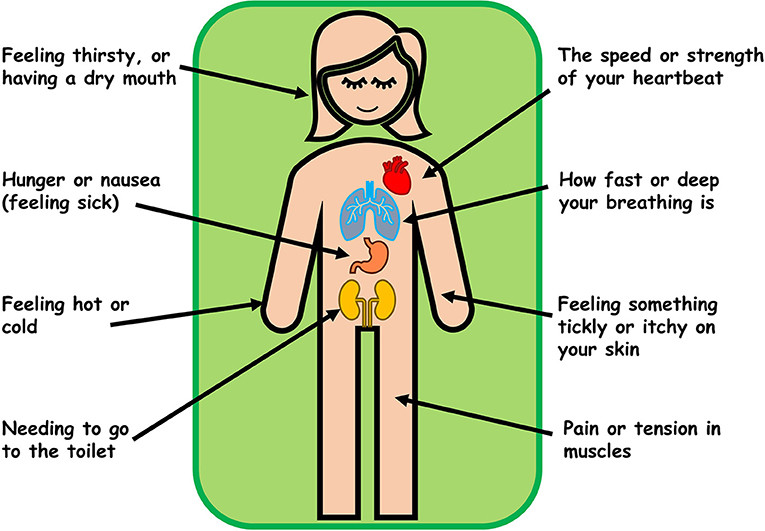Occupational Therapy
Psychology
What is Interoception?

Interoception is a fascinating and often overlooked aspect of our sensory experience that plays a crucial role in how we understand and respond to our bodies.
At its core, interoception is the sense of what is happening inside our bodies. It involves the perception of internal bodily signals, such as hunger, thirst, heart rate, and even emotions. This sensory system helps us become aware of our physical states and can influence our behaviour and emotional wellbeing.
To put it simply, interoception is like having an internal GPS that guides us through our bodily sensations. Imagine you’re feeling a bit anxious; perhaps your heart is racing, your stomach feels tight, or you’re sweating more than usual. These sensations are all part of interoception at work, helping you recognise that something might be off and prompting you to take action, whether it’s taking a deep breath, grabbing a glass of water, or stepping outside for some fresh air.
Image credit: https://kids.frontiersin.org/
Individuals with high interoceptive awareness can be better at managing stress and anxiety, as they can recognize and respond to their bodily cues in a timely and more effective manner. In a similar situation, those with lower awareness may experience a sudden onset of higher-level symptoms such as panic attacks and the like because they have been unaware of the gradually increasing signs within their body.
Many people, including autistic individuals or those with diagnoses of ADHD, trauma disorders, anxiety, depression, eating disorders, toilet training difficulties and sensory processing disorder, have been found to have interoception difficulties. Their inner interoception experience can be unclear, confusing or potentially overwhelming.
Individualised Sensory Assessment and therapy conducted by an Occupational Therapist, can help people with interoception challenges to understand and regulate their own unique inner experiences. The process can help individuals to pay attention to their internal sensations without judgement and discover how their body responds to certain situations and the best actions to take to restore comfort within their body.
One interesting aspect of interoception is its connection to emotions. Our feelings are often accompanied by physical sensations in our bodies. When we experience joy, we might feel a warm rush in our chest; sadness might manifest as a heaviness in our limbs or the filling of our eyes with tears. Understanding these connections can help us become more attuned to our emotional states and lead to better emotional regulation.
Interoception can also influence our social interactions. Being aware of our bodily sensations can enhance our empathy and understanding of others. When we can recognise our own feelings and bodily responses, we may become more aware of the emotions and needs of those around us. This heightened awareness can foster deeper connections and improve our relationships with others.
In conclusion, interoception is a vital yet often underestimated sense that connects us to our bodies and emotions. By becoming more aware of our internal signals, we can improve our emotional regulation, decision-making, and social interactions. Some people may benefit from consultation with an Occupational Therapist if they are unclear or unaware of their body cues. Learning to listen to and understand our body is extremely empowering and can lead to a healthier and more fulfilling life.
